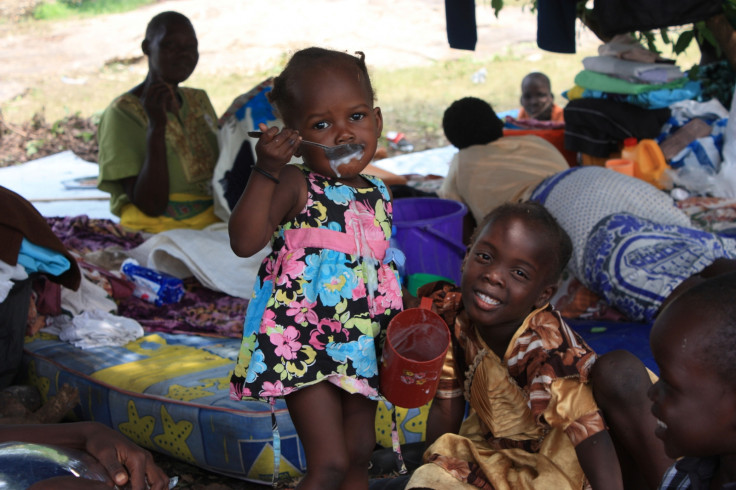Riek Machar's dismissal will not affect peace process in South Sudan says envoy
IBTimes UK interviews South Sudanese envoy in UK on Taban Deng Gai's appointment as acting vice-president.
The recent replacement of South Sudan's opposition leader and vice-president Riek Machar will not jeopardise the ongoing peace process in the country, a South Sudanese diplomat told IBTimes UK. Earlier in July, a section of the Sudan People's Liberation Movement-in-Opposition ( SPLM-IO) appointed minister of mining and SPLM-IO chief negotiator Taban Deng Gai as the acting vice-president, at least until Machar returns to the capital Juba.
Some analysts have pointed out the new appointment – which Machar deemed "illegal" – could create fractures within the opposition with a group supporting Machar and the other supporting Gai. This, coupled with the recent resurgence of violence, is sparking fears that South Sudan could be plunged back into civil war.
The Joint Monitoring and Evaluation Commission (JMEC), in charge of monitoring the full implementation of a peace deal signed last August, criticised Gai's appointment. However, Sabit A Alley, South Sudanese ambassador to the UK, claimed that Gai's appointment was made in accordance with the peace agreement.
"Taban Gai has been nominated by the SPLM-IO to act as first Vice President until Dr Riek Machar returns to Juba to resume his duties," he told IBTimes UK. "It is important to note that this action was in order for the Transitional Government to continue with government business and especially the implementation of the Agreement.
"As required by the terms of the Agreement the Government has to respect this decision of the leadership of the Opposition. I do not see that these temporary changes will affect the peace process," Alley continued.
Machar not in Juba
Gai's appointment came as Machar's whereabouts are unknown, after he fled Juba following deadly fighting that left at least 300 people dead earlier in July.
Machar, who accused government forces of opening fire on his troops, said he would return to the capital once a third party force is deployed to ensure his and his officials' protection.
"The Government and the process of the implementation of the Peace Agreement can not be held hostage because of Riek's absence in the capital. Nobody even knows whether or not Riek has any intentions of returning to Juba to resume his work," said Alley.

Fears of new civil war and row over peacekeepers
South Sudan's conflict erupted in 2013 when Kiir, of the Dinka ethnic group, fired his deputyMachar, from the Nuer group, and his cabinet.
Ethnic-related violence then spread, with militia groups carrying out attacks in villages and areas known to be inhabited by either the Dinka or Nuer tribes.
South Sudan conflict explained
More than 10,000 civilians have so far been killed in the conflict, amid allegations of crimes against humanity committed by both sides, including extrajudicial killings, abductions, rape, torture and use of child soldiers. At least two million people have also been displaced.
Although the warring factions have signed at least seven peace deals, violence has continued, and a January report from the African Union blamed both leaders for the ongoing unrest.
The latest outbreak of violence occurred as the country, the world's newest nation, marked its fifth year of independence from Sudan on 9 July 2016. Machar's return to South Sudan and his reinstatement as vice president in April had restored hopes for the implementation of a peace process signed in August 2015. However, tensions have been running high since Machar's return.
The South Sudanese government has been urged by the international community and Uganda, a key ally of Kiir, to accept more peacekeepers in the country, in a plan backed by the African Union (AU). However, the government opposed the plan, with Alley exclusively telling IBTimes UK the country does not want "to be meddled with by foreign troops".
© Copyright IBTimes 2025. All rights reserved.






















